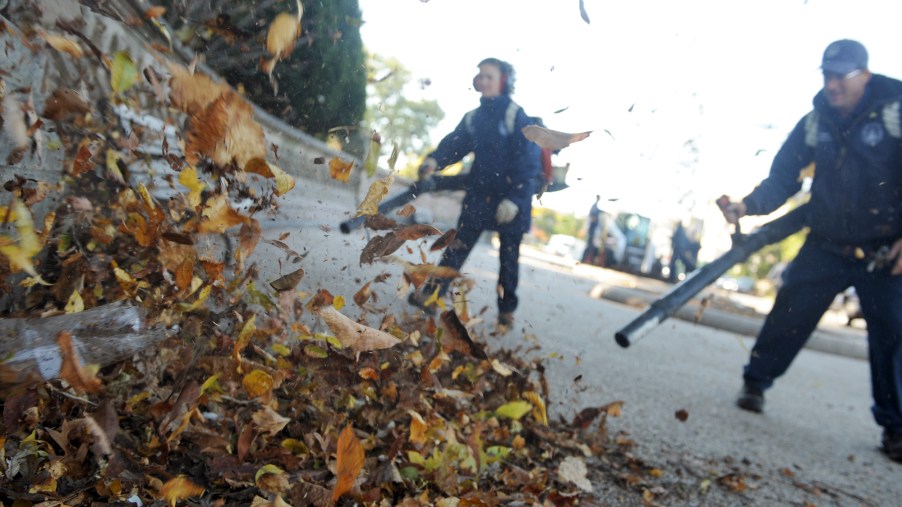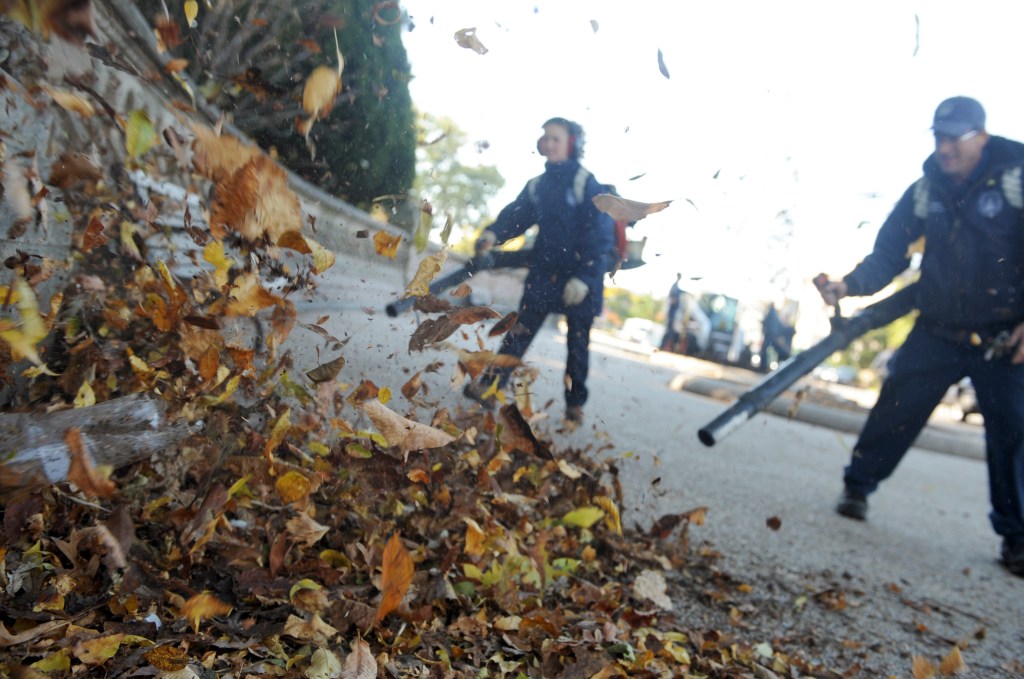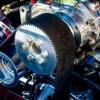
Do You Really Need a Leaf Blower, AKA the ‘Devil’s Hair Dryer’?
The hint of pumpkin spice latte in the air means autumn is just around the corner. Vibrant foliage will begin to fall as homeowners don their cardigans and head outside for seasonal yard maintenance. But be forewarned: Think twice before you power up your trusty leaf blower. What might seem like a simple way to clear your property of fallen leaves and cut grass can wreak havoc on not only the environment but also your neighbors’ nerves.
The battle over loud leaf blowers, an ‘upright middle finger to the entire neighborhood’

In recent years, leaf blowers have become a point of contention among neighbors. Some cities have gone as far as to ban the use of these noisy machines altogether.
The days of raking up piles of fallen leaves for kids to jump in are gone, replaced by what Reader’s Digest refers to as a “loud, noisy, stinky, upright middle finger to the entire neighborhood.” The Atlantic went as far as to call leaf blowers “the Devil’s hair dryer.”
Noise is the biggest complaint, with gas-powered models reaching an ear-piercing 100 to 115 decibels for the user and more than 70 decibels for people in the surrounding area. My Health Alberta notes that “sounds above 85 dB are harmful,” recommending hearing protection to prevent damage from continued exposure.
The folks at Edmunds tested the emissions of a Ford F-150 Raptor pickup truck against an Echo PB-500T backpack leaf blower. They discovered that to “equal the hydrocarbon emissions of about a half-hour of yard work with this two-stroke leaf blower, you’d have to drive the Raptor for 3,887 miles, or the distance from Northern Texas to Anchorage, Alaska.” The leaf blower generated 23 times the carbon monoxide emissions and almost 300 times more non-methane hydrocarbons than the Raptor.
Reader’s Digest suggests leaf blowers “can blast air up to 185 mph, which is greater than a category five hurricane.” It says that “those little machines whip up a lot of hazardous particles and contaminants from the ground, sending them hither and yon, not to mention into your lungs.”
Bloomberg refers to leaf blowers as “pollution bombs” that “constitute a public health hazard for anyone in the vicinity.” The site explains that “the tragedy of the leaf blower is that it makes assholes of us all, users and neighbors alike. The aggressively un-civil nature of these devices is the stuff of legend.”
Do you really need a leaf blower?
Regardless of how your neighbors might feel about your loud and smelly leaf blower, sometimes there’s no better option for quickly clearing debris, especially if you have a large yard.
The New York Times’ Wirecutter notes, “Leaf blowers not only work faster than rakes and take less effort but can also perform many tasks that rakes and mowers can’t.” Plus, “[b]lowers can clean pine needles from a gutter, blow dust out of your garage, clear grass clippings from a driveway, or get leaves out of thick ground-cover plants.”
Stihl recommends using nozzle attachments and operating at the lowest possible throttle speed to reduce leaf blower noise disturbances. The company suggests being “mindful of your surroundings” and “always be considerate of nearby people and property.”
Keep in mind that if your property is less than a quarter of an acre and you have only a few trees, a rake is still the best option.
Various types of blowers
Leaf blowers come in all shapes and sizes. A corded model will eliminate the fumes and noise associated with a gas-powered leaf blower. The only drawback is that you can reach only as far as the cord allows, usually about 100 feet, making it frustrating if you have a big yard.
Battery-operated cordless blowers last about 30 minutes before needing to be recharged. Most are heavy and offer limited blowing power. They also carry a hefty price tag of about $300.
For homeowners with more than an acre of property, a backpack blower might be a good option. Offering plenty of power, this type of unit is recommended for big jobs and heavily wooded areas.
In 2019, Elon Musk said on Twitter: “Tesla is going to develop a quiet, electric leaf blower.” Maybe there’s hope for bad neighbors after all.


